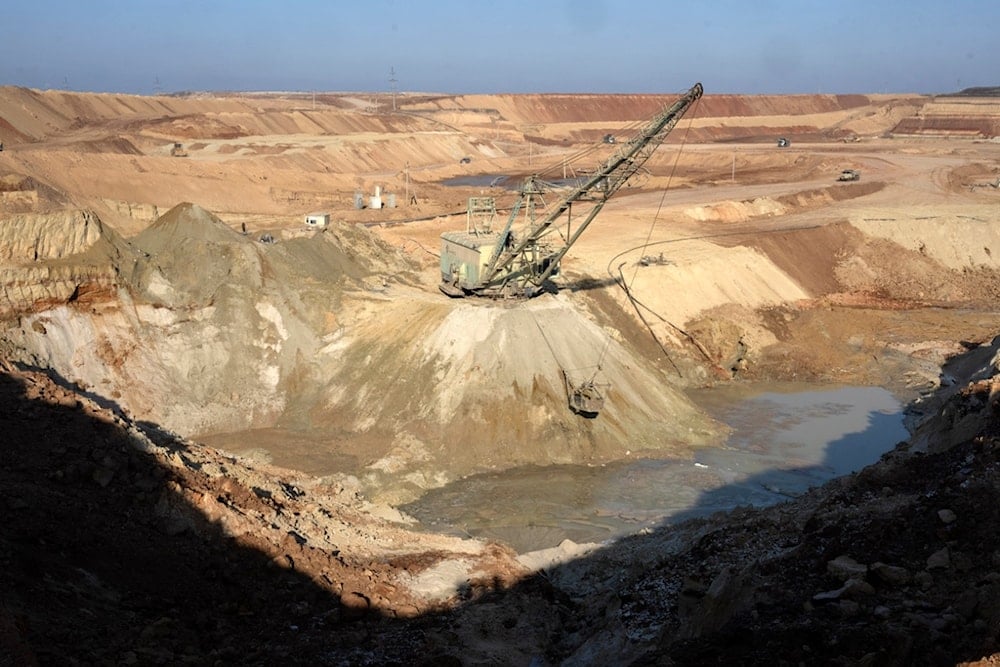Ukraine minerals deal no match for China's supply grip: SCMP
China currently produces 270,000 tonnes of rare earths annually and accounts for 90 per cent of global refining.
-

A view of an ilmenite open pit mine in a canyon in the central region of Kirovohrad, Ukraine, Wednesday, Feb. 12, 2025 (AP Photo/Efrem Lukatsky, File)
An analysis published on the South China Morning Post on Sunday warned that a recent US-Ukraine critical minerals deal is unlikely to offer Washington a quick solution to its dependence on China for rare earth elements and other strategic resources. Despite the agreement's political significance, analysts say practical obstacles, including war, infrastructure gaps, and lack of processing capacity, will delay Ukraine's emergence as a reliable supplier.
Distant Prospect
Much of Ukraine's critical mineral reserves are located in areas currently under Russian occupation, while untapped deposits elsewhere will require years to develop. Even with strong reserves of lithium and graphite, Ukraine's limited processing capabilities remain a major bottleneck.
"The scale is not comparable," said Liang Yan, a professor of economics at Willamette University. Ukraine, she added, "doesn't have tens of billions of mineral deposits. It's also not just about the mineral deposit reserves, it's also about processing power."
The new agreement, signed Wednesday after two months of negotiations, establishes a joint fund to collect 50 per cent of royalties, license fees, and related payments from resource projects in Ukraine. The Trump administration described the pact as part of a broader economic security strategy and a continued show of support for Ukraine in the absence of new military aid.
Still, experts caution that any meaningful output from Ukraine is far from imminent. "First, you need some mines," said Jon Hykawy, president of Stormcrow Capital. "Building a mine takes capital. To raise capital, you need acceptable levels of risk to attract investors. The risk of building a mine in a place that is an active war zone is not acceptable to anyone." He added that Ukraine would need at least a decade before becoming a viable source.
Mineral Dominance
China currently produces 270,000 tonnes of rare earths annually and accounts for 90 per cent of global refining. The US Geological Survey recognizes 50 minerals as critical, including the 17 rare earth elements, and estimates that China holds about 60 per cent of the world's reserves.
Beijing has restricted mineral exports to the United States in response to US trade policies. "Many critical materials are used in China in their own energy transition," Hykawy noted. "Eventually, Beijing will have no need for the US market."
Read more: Trump promised 'to think' about giving Kiev air defense: Zelensky
Liang suggested the US should explore alternatives in Central Asia, given Ukraine's uncertain future. Victor Gao, vice-president of the Centre for China and Globalisation, echoed those concerns: "Given the war situation, it's highly unlikely that it will be developed any time soon. The key is how to refine these sometimes highly scattered materials. The Americans, the Russians, the Ukrainians – they don't have the know-how to extract rare earth materials."

 3 Min Read
3 Min Read








